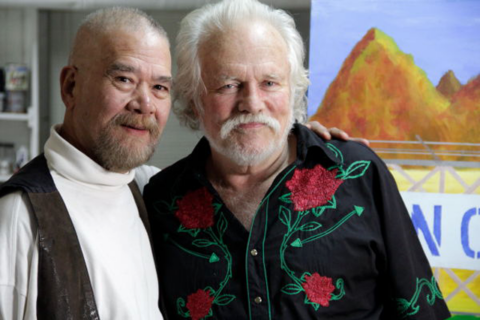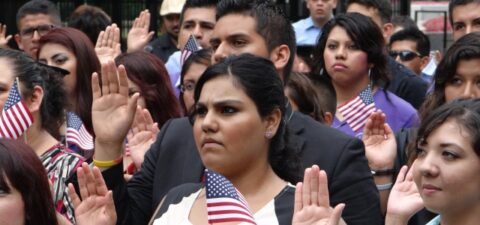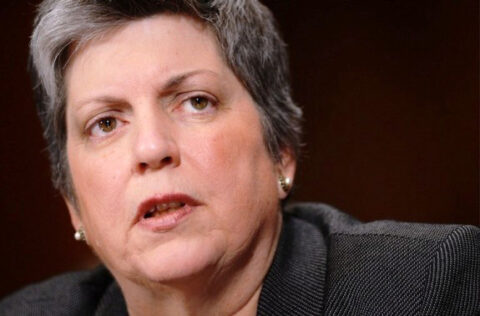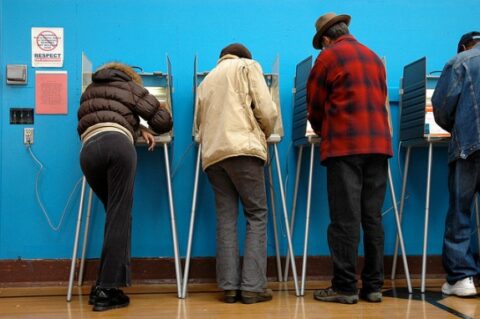California, District 3

Honoring the Foreign-Born Service Members of Yesterday and Today on Memorial Day
Each year, roughly 8,000 immigrants join the U.S. military, bringing linguistic skills and cultural diversity that enrich each branch of the Armed Forces. Nearly 65,000 service members have become naturalized U.S. citizens since September 2001, but there are still limits that prevent young immigrants who want… Read More

Righting a Historical Wrong in Same-Sex Marriage Case
Anthony Sullivan, a native of Australia, fell in love with Richard Adams, an American, in 1971. A few years later, the couple traveled to Colorado when they learned the county clerk in Boulder was issuing marriage licenses to same-sex couples. Soon after, they filed a green-card petition based on… Read More

Understanding H.R. 3431: The American Families United Act
On October 30, 2013, Representatives Steve Pearce (R-NM) and Beto O’Rourke (D-TX) announced the introduction of H.R. 3431, the American Families United Act (AFUA). Co-sponsors as of January 2014 included Jim Costa (D-CA) and James McGovern (D-MA). This bipartisan immigration bill approaches immigration reform from a unique angle, focusing on amendments to the system that address the separation of immigrants from their U.S. family members. The bill expands the discretionary authority of government officials to waive minor violations of law, but does not create new mechanisms for legalizing undocumented individuals. Thus, in contrast to S. 744, the comprehensive immigration bill passed by the Senate in 2013, the AFUA focuses on a narrower group of individuals who might be eligible for lawful permanent residence under current standards if not for certain legal obstacles. Read More

Taking the Important Leap to Citizenship
Each year on September 17, the United States observes Constitution Day and Citizenship Day, a combined event that commemorates the anniversary of the nation’s constitution and recognizes all those who are or have become U.S. citizens. It is considered a time for Americans to reflect on the importance of the rights and responsibilities of citizenship, as well as what it means to be a U.S. citizen. However, it’s also an important time to applaud those who have worked hard to become citizens, while exploring ways to remove barriers for those who are eligible, but still haven’t taken the leap. Read More

Secretary Napolitano Clarifies President’s Deferred Action Plan…Again
Today, DHS Secretary Janet Napolitano testified before the House Judiciary Committee and, as expected, defended the administration’s use of prosecutorial discretion and recently announced deferred action policies for qualified DREAMers—fielding questions and accusations from those who would rather take Napolitano to task than focus on creating smart, humane, and effective immigration policies. Read More

Congressional Budget Cuts Threaten Vital USCIS Integration Grant Program
This month, United States Citizenship and Immigration Services (USCIS) announced $5 million in government grant opportunities available to service providers who help immigrants integrate and prepare for the naturalization exam. The money for these grants, awarded through the Citizenship and Integration Grant program, however, was not appropriated through Congress. Congress actually voted not to fund this vital program, leaving USCIS to cut costs elsewhere in order to keep the program afloat. Read More

Number of Potential Immigrant Voters on the Rise in Key Super Tuesday States
Three of the twelve states holding Republican primaries or caucuses on Super Tuesday—Georgia, Massachusetts and Virginia—show especially strong trends in the numbers of foreign-born residents who have become U.S. citizens. This trend is significant given that these new Americans are able to register and vote. Immigrant communities in each of these states are large, exceeding 800,000 persons, and make up almost 10% or more of the statewide population. In fact, these three states are home to 71% of all immigrants living in the Super Tuesday states. While we don’t yet know how many of these naturalized U.S. citizens will vote on Super Tuesday or in the general election, GOP presidential candidates—many of whom have taken a hard line on immigration—would do well to take note of this trend. Read More

Number of Potential Immigrant Voters on the Rise in Key Super Tuesday States
Three of the twelve states holding Republican primaries or caucuses on Super Tuesday—Georgia, Massachusetts and Virginia—show especially strong trends in the numbers of foreign-born residents who have become U.S. citizens. This trend is significant given that these new Americans are able to register and vote. Immigrant communities in each of these states are large, exceeding 800,000 persons, and make up almost 10% or more of the statewide population. In fact, these three states are home to 71% of all immigrants living in the Super Tuesday states. While we don’t yet know how many of these naturalized U.S. citizens will vote on Super Tuesday or in the general election, GOP presidential candidates—many of whom have taken a hard line on immigration—would do well to take note of this trend. Read More

New Data Highlights Immigrant Integration and Economic Contributions
A recent analysis of data from the Census Bureau highlights the degree to which immigrants integrate into U.S. society and contribute to the U.S. economy. In its latest statistical profile of the foreign-born population, the Pew Hispanic Center presents statistics which illustrate that most immigrants have been here for more than a decade, more become homeowners the longer they are here, and growing numbers are becoming U.S. citizens. Moreover, the data show the degree to which immigrants fuel labor-force growth and fill valuable roles in the economy as workers in both high-skilled and less-skilled occupations. Read More
Make a contribution
Make a direct impact on the lives of immigrants.
